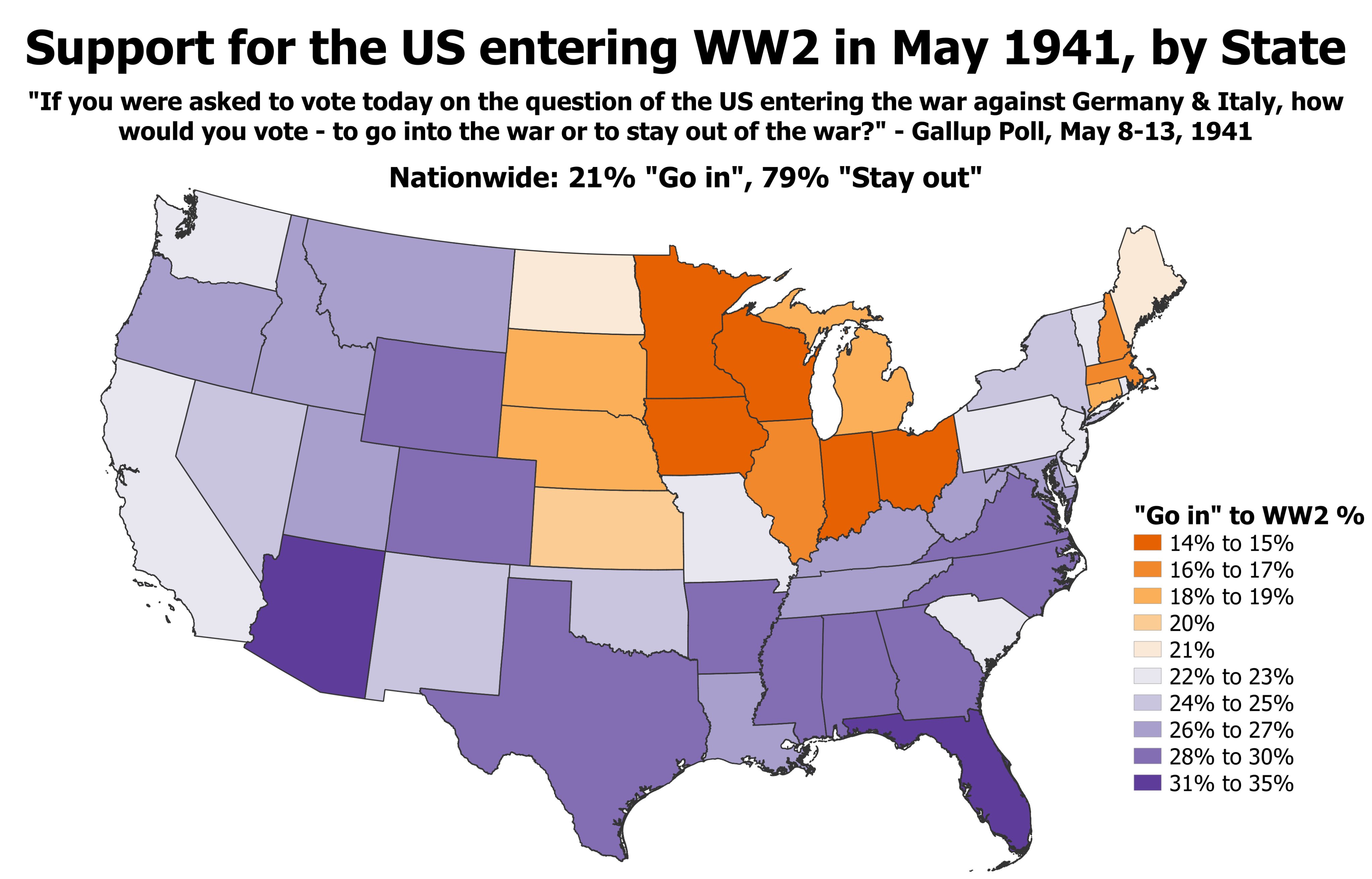Max Sinister
Well-known member
- Location
- The Chaos Timeline
All in all, that seems to be a TL where the Allies win even faster - hence, not that interesting.
All in all, that seems to be a TL where the Allies win even faster - hence, not that interesting.


Saw this from Twitter and thought it relevant.
Parts of the Midwest did have strong isolationist feeling, thought.The map is very interesting. The negativity towards entry into the war, being concentrated in New England and the Midwest really makes me think it is not a matter of regional bellicosity or regional cultures but ethnicity. The correlation being concentrations of ethnic Germans and ethnic Irish depressing pro-Allied sentiment.
Could you, please, link to the Tweet?
Saw this from Twitter and thought it relevant.
Parts of the Midwest did have strong isolationist feeling, thought.
LaFollette had a lot of support in parts of the Midwest because of his isolationism. During World War I, Scandinavian Americans didn't want to fight Germans as fellow Lutherans.Those correlate with high numbers of German Americans. I would expect more negativity towards intervention in Pennsylvania as well, but perhaps the German element there was more watered down Slavic, Italian, Jewish ethnic elements around Philadelphia and Pittsburgh, and more idealistic academics.
